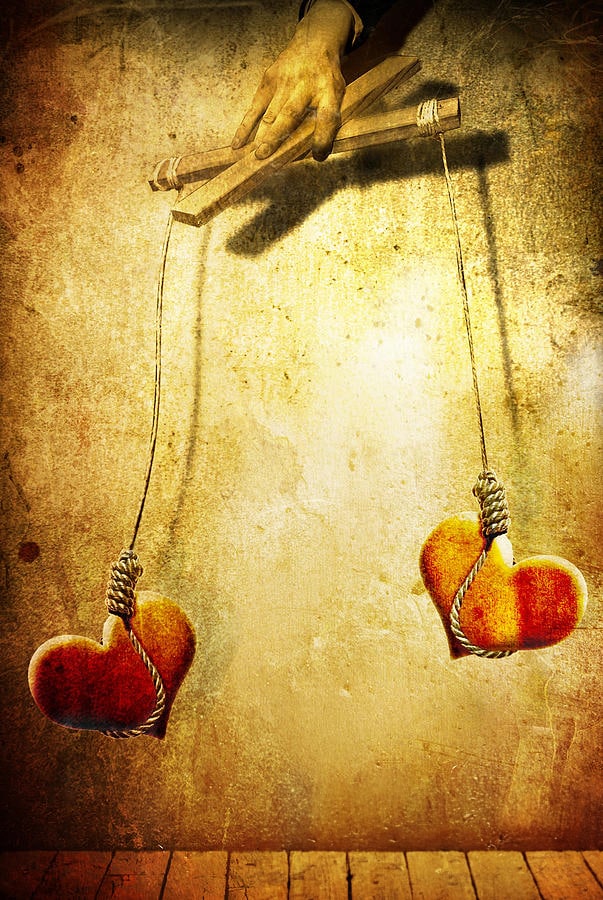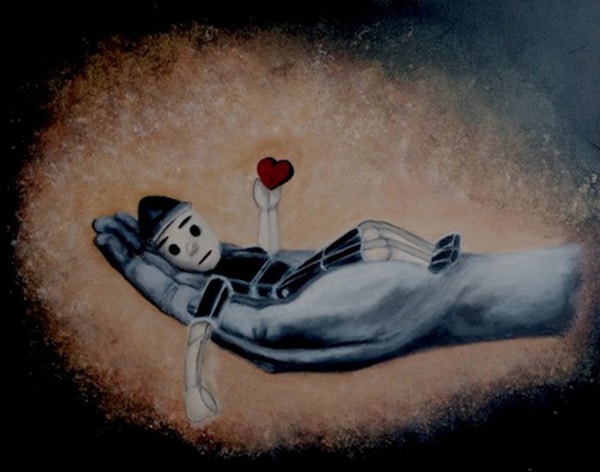-
Narcissistic Attachment
Are you in a Relationship with a Narcissist?
-
Narcissism is a disorder wherein a person tends to focus on themselves more than their partner. In this type of trait, the narcissist’s “cleverness” can be seductive as “game playing” is used in order to get a “reaction” from their partner, which can be experienced as extremely cruel and painful for the victim of narcissistic neglect; this is what lies at the core of a damaging dysfunctional communication between the couple. If this is prevailing in a relationship, it can cause the victim of narcissistic neglect to be caught in a cycle of anxious attachment and co-dependency.
– Helen Mia Harris (MBACP Registered)
-
My work as a Relationship Therapist makes a tangible difference to any tender issue…
Are you sometimes afraid of your partner, do their moods swing in one direction to another in a short space of time, especially if they feel rejected by you?
If so, you may be in an unhealthy relationship with a narcissist.
In my practice, I often see people who speak about their self-doubt and their fear about the direction in which their relationship is heading. They speak of something intangible which gives them the sense that the relationship is unhealthy and wrong. They feel it is out of balance and have a sense that something is not quite right. They are constantly on edge and are aware that they are often walking on eggshells, fearful they will trigger something off in their partner at any given moment.
A female client of mine explained, “I’m here because I feel the most debilitating anxiety in the pit of my belly and I’m emotionally drained by it all. I know I love him when he is kind but when these awful outbreaks happen, I feel lost and overwhelmed. I used to be spontaneous and passionate about the direction my life was going in but now I feel weak and powerless. Everything about me seems small and frail when I’m with him and I’m more nervous and anxious then I have ever been before. It’s as if my own personality disappears when I’m around him.”
-
“I find myself “double checking” everything I do as I’m afraid he will, once again, explode into a jealous rage. It’s as if I’m hiding a big chunk of me away. I pretend to family and friends that I’m no longer with him as I know they have noticed a difference in me. I know that my weight loss and the numbness I feel is caused by the relationship. I’m just not the same anymore. I’ve changed but I’m unable to let go of him. This has been going on for years now but I’d be nothing without him. Or at least I don’t think I could survive being alone.”
She continues, “I wonder… Do I suffer from love addiction or co-dependency as I can’t seem to break this abusive cycle between us? These arguments happen out of nowhere, so I tell myself that this time I won’t react as I feel I must be doing something to set him off. It’s like being with Doctor Jekyll and Mr Hyde, as one minute he’s caring and tender towards me and the next moment suspicious, manipulative, scary and possessive.
I tell myself that the real ‘him’ is the gentle caring one and that’s what keeps me going. It’s as if I’m constantly battling with a dual argument in my head. One saying I must get out of this relationship as it’s bad for me; and the other voice saying that if I try harder, we can make something special together as physically we are so attracted to one another. Strangely, I have noticed that when we are intimate together, particularly after an argument, we are intense and close and all the horrible things dissolve. And that’s the dilemma…”
-

-
A lot of people stay in unhealthy relationships because they have developed a belief that they are “causing” the problems. They feel full of self-blame and have a fear of being alone. They find it near to impossible to break the dysfunctional patterns of relating. They believe that being with someone is better than being alone, even if that someone mistreats them and adds nothing of value to their lives.
Emotional abuse is so silent and so hidden because in public the narcissist is often charismatic, persuasive, exciting and confident. However, within the relationship the narcissist can show little sign of empathy and sensitivity. Somehow, you can feel that their personality just doesn’t seem to add up as it’s fraught with dishonesty, blame, control and manipulative games which can leave many in a constant state of despair and confusion.
One minute the relationship is over and the next, back together. The victim of the narcissist will always be “anticipating” the fall out, never quite knowing where it is going and in what direction. Many try to leave and look for a way out, but this kind of toxic attachment is extremely difficult to break as the victim of narcissism feels so powerless.This type of relationship leaves the victim little energy or choice but to stay stuck in a cycle of neglect and control.
Signs that may show you are in a narcissistic relationship
- Do you lie to others about your partner’s real behavior?
- Do you feel you are alone and helpless with constantly trying to “understand” your partner’s behavior?
- Do you make allowances for your partner with others, i.e. he/she isn’t feeling well today?
- Is your partner unpredictable so that you fear/dread going home in case he/she is in one of “those moods”?
- Is there nothing that you do right or appreciated unless he/she approves of your decision?
- Does your partner withhold sending you a text message or phoning in order to “make” you feel anxious or even jealous? (Please note that this is by far one of the most punishing games a narcissist can do to gain control and render you powerless)
- Does rejection play a huge part in your relationship, especially after an argument? And as a consequence, do you fear abandonment?
- Does your partner keep you from seeing friends and family?
- Does your partner disapprove and speak lowly of your friends, acquaintances and family?
- Do you leave with all good intentions in order to begin a life alone yet return to the relationship as soon as he/she promised it will be different?
-
- Do they minimise, mock or insult what you think or say in public or together? (Note this can be done to keep you small and lower your self-confidence)
- Does your partner tell you that no one else would ever want you? (please note this is often the case to keep you weak and dependent)
- Are you checked or picked up on the slightest thing that he/she disapproves of?
- If you are potentially running late from work or miss a train, do you panic and become anxious for fear that your partner “thinks” you are lying to them? (Please note the narcissist is paranoid at being lied to)
- Are you continually accused of having an affair or being promiscuous? If yes, does your partner call you “unacceptable” names that no one has ever called you before?
- Is your partner’s behavior worse if they have been drinking alcohol?
- If your partner threatens to leave, do you beg and plead with them not to go for fear of abandonment and rejection?
- If you are in a broken state like above, do they become emotionally cold and unavailable as if they “enjoy” seeing you needy?
- Are you always walking on egg shells for fear his/her anger will erupt?
- When you get in to a dispute, do you feel that your “mind is in a mince” confused as to how the argument began and how to resolve it?
- Do you feel interrogated and as if a bright light looms over your every word with “yes” and “no” answers only?
- Have you changed the way you are, your natural personality and your spontaneity, for fear of provoking your partner’s anger?
- Does your partner have low self-esteem?
- Did you have low self-esteem before you met your partner?
-

-
If you have answered yes to five or more of these questions, you may well be in a relationship with a narcissist.
I can help you gain your self worth and self-understanding and achieve an insight into some of the “unconscious triggers” that may be keeping you stuck in this type of relationship. My 60 minute Counselling Sessions can help people find a way through this overwhelming pattern and become stronger and happier within yourself.
To make an appointment for a Counselling/Therapy or Coaching Session:
- You can call Helen Mia on 01732 617344
- Email enquiries@helenmiaharris.com
- To make an appointment or an enquiry, fill out the simple contact form
- Learn more About Helen Mia
